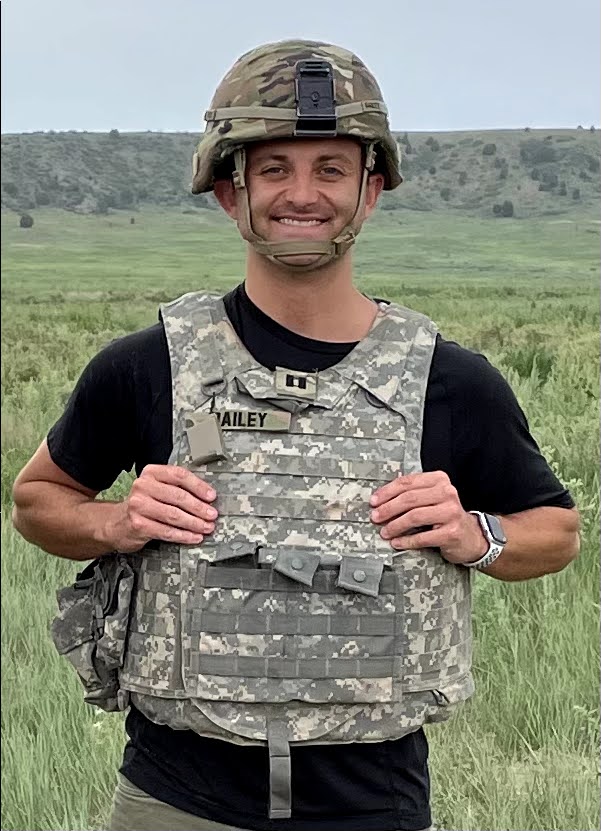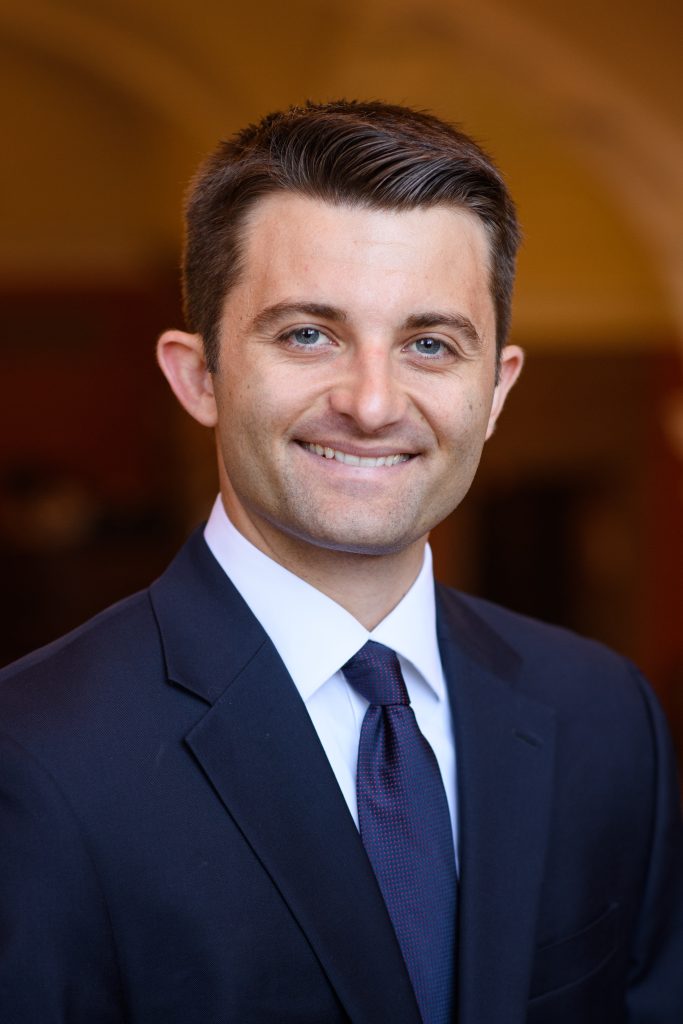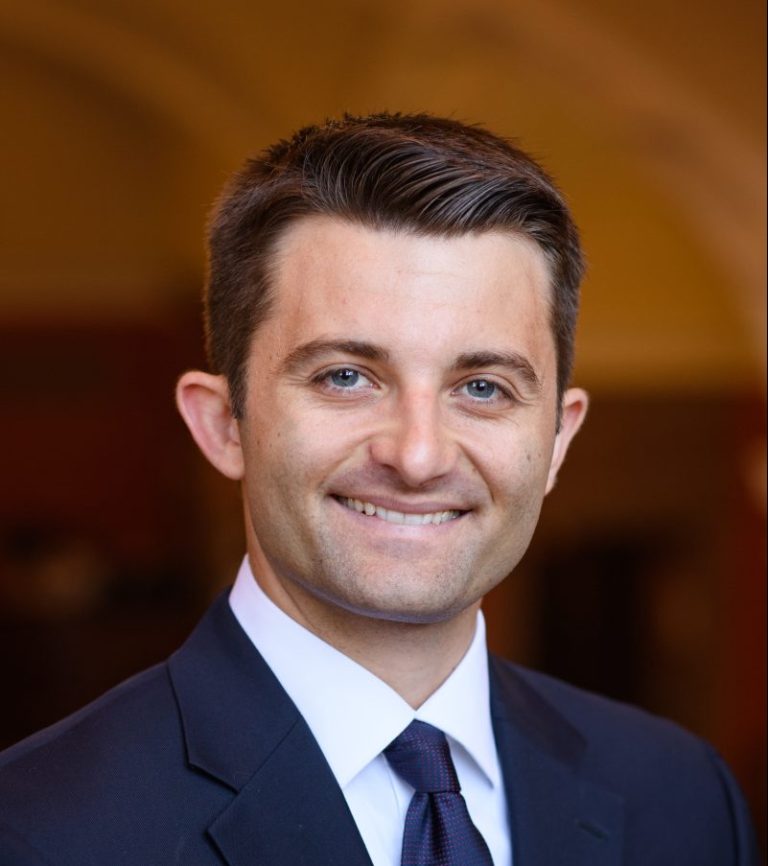Editor’s note: We are pleased to introduce a new series spotlighting members and alumni of the CERL community. The center owes its success to the energy and dedication of its people. We invite you to meet some of these talented individuals and read about the experiences and achievements that led them to join us on our mission to preserve and promote the rule of law in national security, warfare, and democratic governance. If you are interested in being featured in this series or wish to nominate someone, please write to us at [email protected].
This post features a conversation with former CERL Intern Quinn Dunkak. The interview was conducted on May 3, 2022, prior to his graduation from the University of Pennsylvania Carey Law School. It appeared originally in CERL’s 2020-21 Annual Report, available here.
“I never once felt that my work as a CERL intern was unimportant or discounted; CERL allowed us to contribute substantial work product right from the jump and that dynamic never changed.“
—Quinn Dunkak, University of Pennsylvania Carey Law School, J.D. ’22
Quinn Dunkak is a 2015 graduate of Johns Hopkins University, where he earned a Bachelor of Arts in International Studies with Honors in three years. Following graduation, Quinn served as a Management Consulting Analyst with Accenture and a Corporate Sponsorship Liaison with Splashes of Hope. During law school, Quinn worked as an intern with the Center for Ethics and Rule of Law, the U.S Army JAG Corps, the U.S State Department, and the Philadelphia District Attorney’s Office. Quinn graduated from the University of Pennsylvania Carey Law School in May 2022. Quinn describes his time at CERL as one of the pivotal moments at Penn. He joined the Department of Justice as an attorney in 2022.
Q: What activities are you engaged with at the University of Pennsylvania Carey Law School?
I was on the board of the Public Speaking Society during my second year. In my last year at law school, I served on the board of the Journal of International Law as Comments Editor. I have also been on the Wellness Committee at the law school for all three years. We discuss initiatives we can pursue to lift the mood in the building and provide resources that students can lean on through the highs and lows of a school year. Our goal is to build community and a culture of trust and openness between the student body and administration.
Q: What inspired you to join CERL?
I knew I was interested in government service going into law school, but I did not know much about national security outside of what I read in the news. In particular, I did not know how it intersected with the law and the career opportunities it offered. I was also drawn to CERL for their focus on rule of law issues. This is a subject not frequently touched upon in most law school classes, so I felt that CERL provided a necessary forum to think critically about what the rule of law means in theory and in practice.
Q: What is your current position and how did CERL prepare you for it?
I will be working as an attorney with the Department of Justice in their Honors program and will rotate through different areas of law. Some of these assignments will focus directly on legal issues stemming from developments in national security. CERL was helpful because it introduced me to different areas of national security and the important and varied roles that lawyers play in the space. We had several guest speakers during the internship, and many of them were either current or former JAG attorneys. I was blown away by the breadth of legal areas that JAGs are involved in and the amount of responsibility they take on so early in their careers. This is what inspired me to pursue a summer internship with the Army JAG Corps and what ultimately prepared me for the next step with the DOJ.
CERL does important work—they are nonpartisan and focused on a variety of issues touching on national security. I particularly appreciated their focus on using facts and data to inform the public and to promote civil, intellectual discourse on otherwise highly politicized issues. I feel that my CERL experience served as a critical first step in helping me find a legal career path that is the best fit for me.
Q: What skills or knowledge did you learn during the CERL program that you find most useful?
I supported planning efforts for the CERL conference on nuclear deterrence, which was one of the workstreams they were focused on that summer. This involved working with the lead attorney and lead fellow, Chris Jacobs. He wrote a policy brief on why and how the United States should change its nuclear policy, and I helped Chris refine this paper. I also assisted with the planning of conferences. This included updating the conference proposal, offering different recommendations for topics and panels to consider, and working on the logistics of planning an event. At CERL, I learned how to collaborate not only with attorneys and practitioners in the national security space but also with my classmates. I was able to sharpen my research and analysis skills by working on policy papers and research projects on topical issues in national security.
Q: What has made you feel a part of the CERL community? What made the CERL space enjoyable?
The ongoing support from Professor Finkelstein and staying current on CERL events and publications. I took a class this past semester with Professor Finkelstein called National Security Law which helped to synthesize a lot of what I learned at CERL with more concrete legal concepts. Otherwise, I stay in touch with other students and colleagues whom I worked closely with during our summer together. I also try to attend CERL events such as the recent panel event where we heard from former detainees from Guantánamo Bay. CERL always seems to be on the forefront of emerging issues in national security as well, so I use their scholarship as a resource to stay abreast of such developments and to keep my knowledge current.








